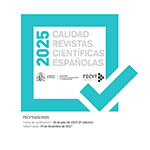Moral Autonomy, Popular Sovereignty and Public Use of Reason in Kant
Résumé
In Between Facts and Norms, Jürgen Habermas points out an ambiguity in the Kantian concept of autonomy that would lead to an antagonism between human rights and popular sovereignty. He charges Kant of introducing this concept from the private point of view of the individual subject who judges morally and of elucidating it from the point of view of the discursive and democratic political formation of the will. Against this reading, Ingeborg Maus argues that Kant develops human rights and popular sovereignty in the closest reciprocal complementarity. Nonetheless, she agrees with Habermas’s critique of the monological character of the Kantian principle of morality and reaffirms the ambiguity of the concept of autonomy. The aim of this article is to to shed light on Kant’s conceptions of Enlightenment and “public use of reason” developed in his political writings, in order to suggest that far from devaluating the political formation of the will, Kant establishes it as a fundamental step towards the realization of morality and, therefore, of the autonomy of the will. First, I will argue that in explaining the principle of autonomy with the idea of self-legislation of the will, Kant does not introduce ambiguity in this concept. On the contrary, it establishes a common normative structure between the domains of moral and right. Finally, I will return to the Doctrine of Right to argue that for Kant, interaction and communication between citizens is not lateral to the legitimation of right, since the members of the political community must consent and be convinced by reason.
Téléchargements
##submission.format##
Licence
La revista Las Torres de Lucca. International Journal of Political Philosophy, para fomentar el intercambio global del conocimiento, facilita el acceso sin restricciones a sus contenidos desde el momento de su publicación en la presente edición electrónica, y por eso es una revista de acceso abierto. Los originales publicados en esta revista son propiedad de la Universidad Complutense de Madrid y es obligatorio citar su procedencia en cualquier reproducción total o parcial. Todos los contenidos se distribuyen bajo una licencia de uso y distribución Creative Commons Reconocimiento 4.0 (CC BY 4.0). Esta circunstancia ha de hacerse constar expresamente de esta forma cuando sea necesario. Puede consultar la versión informativa y el texto legal de la licencia.







